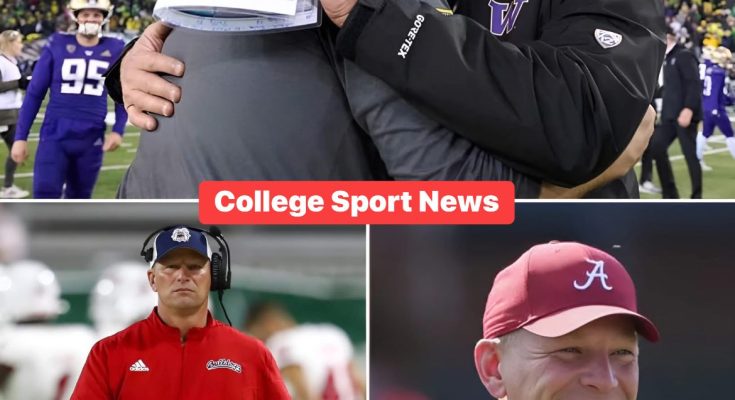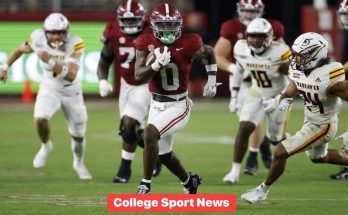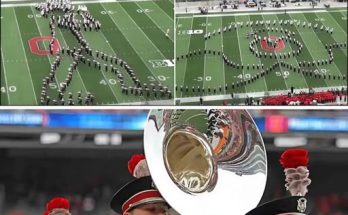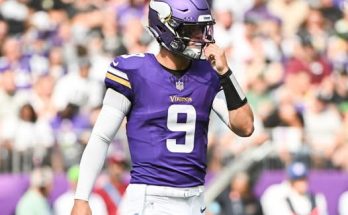The loss Alabama suffered to Florida State in their 2025 season opener was more than just another defeat in the win-loss column. For Crimson Tide fans, it represented something far deeper: a program at a crossroads, a team that for decades has been synonymous with dominance now staring into a mirror of vulnerability. Alabama’s 31-17 setback in Tallahassee not only broke a 24-year streak of winning season openers but also triggered whispers—some quiet, some roaring—about whether Kalen DeBoer is truly the right man to shepherd the program in its post-Saban era. Few jobs in all of sports carry the same level of expectation and pressure as the head coaching position at Alabama, and DeBoer, in just his second season, is discovering what happens when a fanbase accustomed to titles and playoff appearances sees mediocrity creeping in.
DeBoer arrived in Tuscaloosa with considerable fanfare, having built Washington into a formidable contender. He was praised for his offensive mind, his steady leadership, and his ability to win big games against strong competition. But the challenge of succeeding Nick Saban was always going to be Herculean. Saban wasn’t just a successful coach; he was a cultural icon at Alabama, a figure who redefined excellence in college football and turned the Crimson Tide into the gold standard of the sport. Anyone who followed him was bound to be measured against an impossible bar. That reality has now hit DeBoer in full force. His 9-5 record so far is not abysmal by ordinary standards, but in Tuscaloosa, anything short of playoff contention feels like failure.
The Florida State loss exposed weaknesses that many had already been worried about. The offense looked disjointed, the line struggled to protect, and the defense—once the pride of Alabama football—was beaten in critical moments. Florida State capitalized on every error, showing poise and execution while Alabama appeared hesitant and at times overmatched. The optics were damaging because this was supposed to be a statement game, a chance for DeBoer’s team to silence critics and declare that Alabama was still a national power even without Saban at the helm. Instead, the game only intensified doubts.
Into this storm of speculation stepped college football insider Michael W. Bratton, who on his show gave voice to a theory that has been whispered in SEC circles for months: the idea of Lane Kiffin returning to Alabama, this time not as offensive coordinator but as the head coach. Kiffin’s name carries both intrigue and controversy in Tuscaloosa. From 2014 to 2016, he served as Saban’s offensive coordinator, helping to modernize the Alabama offense and contributing to a national championship in 2015. His play-calling and innovative approach brought excitement, but his brash personality and public clashes with Saban created friction that ultimately led to his exit. Still, his offensive genius was undeniable, and he has since rebuilt his reputation at Ole Miss, where he has turned the Rebels into one of the most dynamic and feared teams in the SEC.
The idea of Kiffin returning is tantalizing for many fans who remember the electric offenses he produced and who now watch Alabama’s struggles with impatience. Kiffin has proven he can recruit, adapt, and win in the modern era of college football, and his ties to Alabama’s system make the fit seem natural. Bratton, however, was quick to point out the massive financial obstacle standing in the way. DeBoer’s buyout alone is estimated at around \$70 million, a staggering figure even for a program with Alabama’s resources. Adding Kiffin’s buyout from Ole Miss could bring the total cost close to \$100 million. In today’s college football, where NIL collectives already demand deep pockets from boosters, such a price tag would test even Alabama’s legendary donor base.
This raises an important question: how much are Alabama’s leaders and fans willing to pay to restore dominance? For years, Alabama boosters have opened their wallets to ensure the program stayed at the top, funding facilities, recruiting efforts, and staff salaries that were unmatched elsewhere. But the landscape has changed. NIL money is now critical to attracting and keeping top talent, and if Alabama commits nine figures just to change coaches, that could significantly impact their ability to compete for recruits. Bratton himself noted that Alabama’s NIL resources, while strong, are not limitless, and pouring so much into coaching buyouts might weaken the broader foundation of the program.
Still, college football is as much about perception as it is about reality. When a program like Alabama looks vulnerable, recruits notice, rival coaches pounce, and fans grow restless. The SEC is unforgiving; there are no rebuilding years, no grace periods. With Georgia establishing itself as the current alpha of the conference, Texas and Oklahoma entering the league, and programs like LSU and Florida State showing strength, Alabama risks slipping further behind if decisive action is not taken. DeBoer is now under immense pressure not just to win but to prove he can lead Alabama into this new, hyper-competitive era.
Lane Kiffin, for his part, has been careful not to openly express interest in the Alabama job, but his name always seems to surface when big jobs are in flux. His reputation as an offensive innovator and his ability to bring excitement make him a logical candidate, even if his brashness and unpredictability give some decision-makers pause. He has grown since his early days, showing maturity at Ole Miss that many believed he lacked in his stints at USC and the NFL. Whether Alabama would be willing to embrace him again is a question that remains unanswered, but fans dreaming of a high-flying offense can’t help but see the appeal.
DeBoer, meanwhile, is facing what may be the defining stretch of his career. The SEC schedule looms, and Alabama cannot afford further embarrassing losses. A strong conference run could quiet the rumors and buy him more time, but another disappointing season would likely make the calls for change impossible to ignore. He must find a way to rally his team, sharpen the execution, and give fans a reason to believe. The reality is that Alabama football is not built on patience. Saban created a dynasty that demanded championships, and the fanbase has been conditioned to expect nothing less.
The psychology of the Alabama fanbase is critical here. To them, the standard is not just winning—it is dominance, intimidation, and being the most feared program in college football. Anything short of that feels like decline. The Florida State loss did more than hurt in the standings; it bruised pride, created doubt, and triggered memories of the pre-Saban era when Alabama was good but not great. For a fanbase that tasted nearly two decades of supremacy, that is unacceptable.
The financial realities are daunting, but history shows that programs of Alabama’s stature rarely let money stand in the way of football success. Buyouts, while steep, are increasingly becoming part of the cost of doing business in college sports. If DeBoer cannot turn things around quickly, it is not unthinkable that Alabama’s boosters could find a way to cover the massive payout required to make a change. The idea of Lane Kiffin returning is one possibility, but if the Tide move on from DeBoer, they will have no shortage of suitors. Every top coach in the country would at least consider the Alabama job, given its resources, tradition, and the chance to lead one of the most iconic programs in history.
For now, speculation dominates the conversation. Fans debate endlessly on message boards, sports talk shows dissect every comment and every play, and insiders like Bratton continue to fuel theories. DeBoer himself has remained publicly focused on his team, avoiding the noise, but he surely understands the stakes. One more humiliating loss, and the calls for change could become deafening. Lane Kiffin may or may not be the ultimate solution, but his name will linger as long as Alabama’s offense sputters and its record fails to match expectations.
Alabama football finds itself in a rare and uncomfortable position. For so long, it was the hunter, setting the standard and watching others scramble to catch up. Now, after a humbling defeat and a shaky tenure under DeBoer, the program feels vulnerable, reactive, and uncertain. The next few months will be critical in determining whether Alabama can reassert its dominance or whether the program will drift further from the heights it once owned. In the unforgiving world of the SEC, there is no time for extended growing pains, no margin for error. DeBoer is learning that reality the hard way, and unless he can deliver wins—and quickly—the theory of Lane Kiffin to Alabama may move from rumor to reality.



